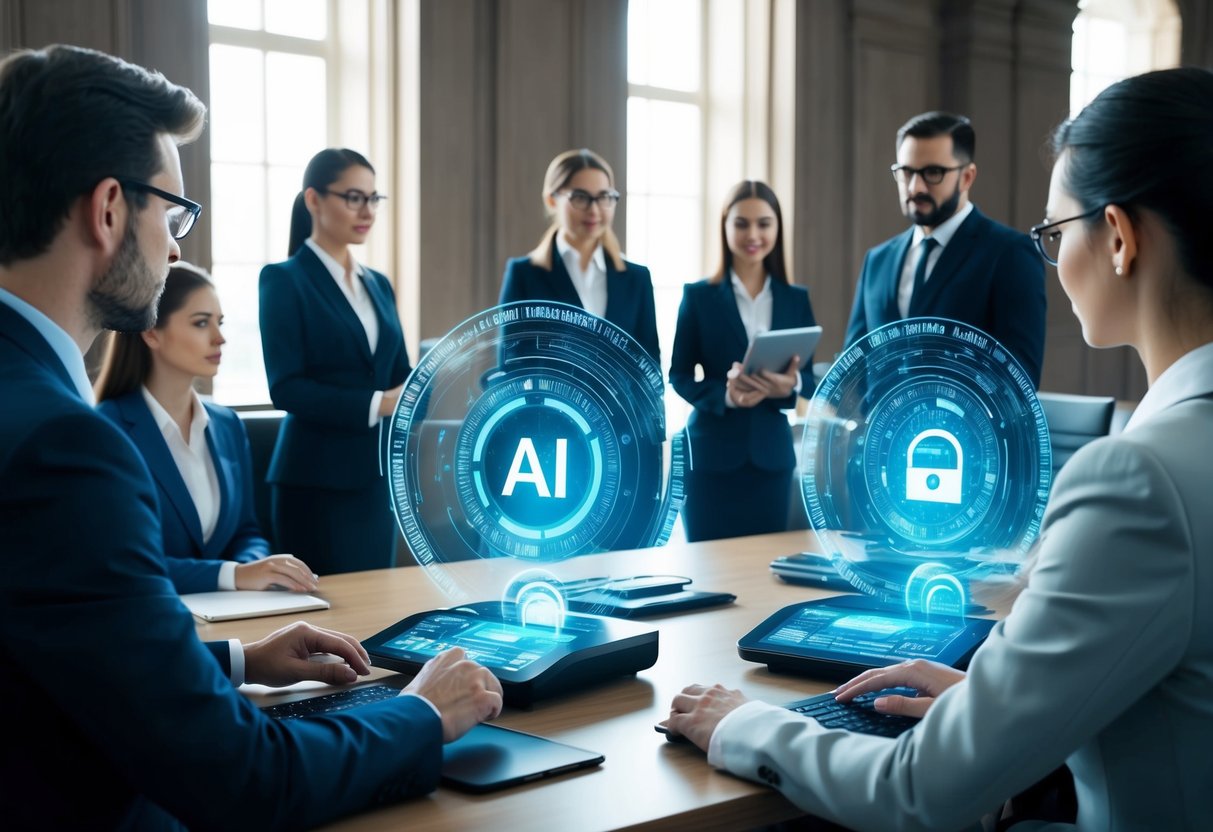
AI, Legal Analytics, and the Business of Law
Artificial intelligence is changing the way legal analytics works, leading to increased efficiency and customized services for clients. This impacts the profitability of law firms and strengthens client relations.
Profitability and Efficiency Gains
AI integrates into legal analytics to enhance profitability and streamline operations for law firms. By automating routine processes, firms reduce the time and resources required to complete these tasks, allowing them to focus on more complex cases. AI tools provide deep insights into legal data, enabling firms to predict lawsuit outcomes and improve decision-making. This enhanced accuracy minimizes risks and errors, which translates into financial savings.
Efficiency gains also arise from better resource allocation, where AI identifies the optimal allocation to maximize productivity. Legal professionals use these insights to adjust their strategies and manage workloads more effectively. Overall, AI-driven analytics supports a data-informed approach that enhances profitability while maintaining high standards of service.
Client Relations and Service Customization
AI advancements in legal analytics also transform client relations, providing a more personalized experience. Customizing legal services based on specific client needs becomes easier with AI analyzing data patterns and behavior. This allows firms to tailor strategies and recommendations, addressing individual client concerns accurately and promptly.
Interactive AI-driven platforms also enhance communication, facilitating continuous dialogues between legal teams and clients. This efficient communication builds trust, as clients feel their needs are genuinely understood and catered to. AI’s capability to provide secure digital solutions strengthens confidentiality and data protection, further enhancing client trust. As a result, AI’s role in refining service delivery shapes a more client-centric approach.
The Future of AI in the Legal Domain
Artificial Intelligence is set to significantly reshape how legal services are delivered. By integrating emerging technologies and understanding future trends, the legal sector stands on the cusp of transformation.
Emerging Technologies and Future Trends
Recent years have witnessed rapid advancements in AI, particularly in the form of generative AI models. These systems are revolutionizing how legal documents are drafted, analyzed, and reviewed. Natural Language Processing (NLP) continues to improve, enabling more sophisticated legal research through vast databases at unprecedented speeds. Smart contracts on blockchain technology are gaining traction in automating and securing transactional agreements.
Machine learning is being used to predict legal outcomes, offering insights into case strategies and potentially reducing client costs. Robotic Process Automation (RPA) is another trend streamlining repetitive tasks such as document management and billing. As AI tools become more affordable, adoption rises, making legal services more accessible and cost-effective.
Long-term Projections for the Legal Sector
Looking ahead, AI’s role in the legal sector is expected to expand further. Legal professionals may increasingly rely on AI for decision-making support, rather than just administrative tasks. Merging AI with current legal systems, rather than completely replacing human involvement, is anticipated.
The integration of AI ethics and regulation becomes essential, ensuring trust and compliance. Generative AI technology could lead to more personalized client interactions, aligning legal services with individual needs. The collaboration between AI and legal practitioners is likely to yield innovative solutions for complex legal challenges, driving a more efficient and reliable legal environment.